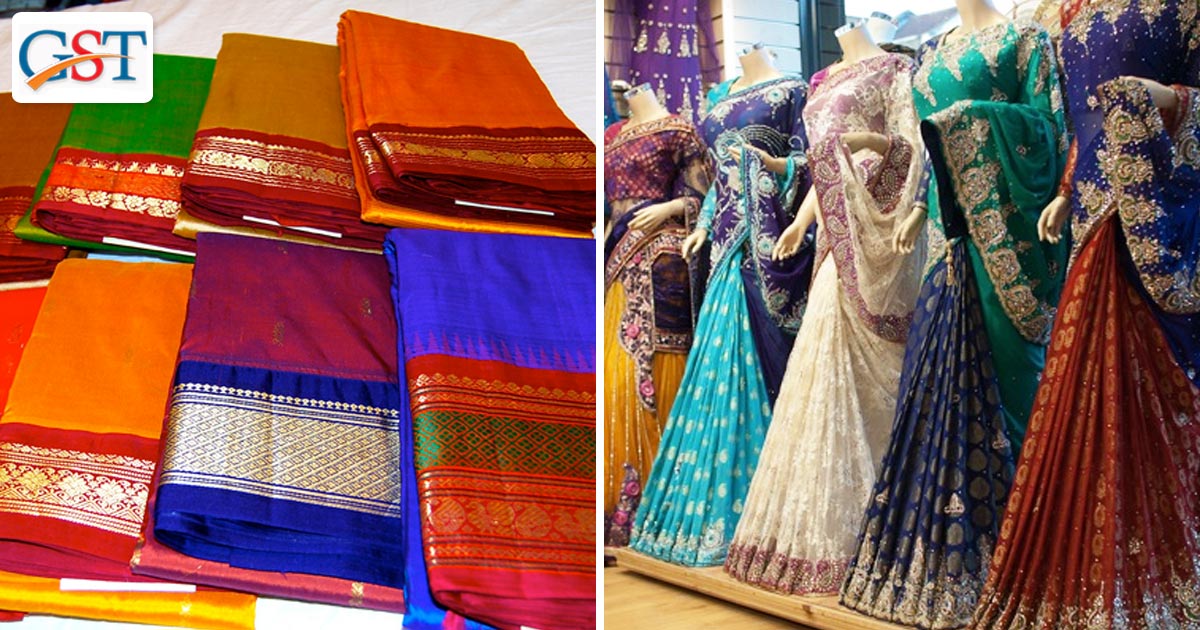The Central Board of Excise and Customs (CBEC) has clarified the confusion on GST rates of Sarees. The statement stated that whether designer sarees or embroidered, will impose a five percent tax rates under the new Goods and Services Tax (GST). While clearing the confusion whether sarees will be considered as garment or fabric, the CBEC replied that sarees will be considered as fabric and it remains so even after embroidery etc, as no new item emerges having a distinct name, character, and use.
The CBEC stated in a set of frequently asked questions (FAQs). “Therefore, sarees, embroidered or not, would be taxed at the same rate at which the fabric is taxed.” By adding that, 5% GST would be imposed on job process work which includes all textile yarn fabrics ( Other than man-made fiber/ filament).
In a set of Frequently Asked Questions with respect to dress materials, the CBEC said that if the Sale Value or Maximum Retail Price (MRP) of the dress material exceeding above Rs 1000 will impose 12% GST and below Rs 1000 5% GST will be imposed.
As per earlier GST rates announced by the Council, all fabric collection including yarn and cotton impose 5% tax rates. Handmade fabric or dress below Rs 1000 will impose 5% tax, and above Rs 1000 will impose 12% tax rate, in the new indirect tax regime.
In respect to the sale of old dhotis, the CBEC said that “it would be considered as “worn clothing” and will impose taxes on the basis of sale value. As presumably, the old cotton dhoti would be below the sale value of Rs 1,000 per piece, it would be taxed at 5%.” In respect to new dhotis, 5% tax rate will be imposed under the light of new regime.
The Central Board of Excise and Customs also stated that Jute handbags, as well as shopping bags, would impose 18% percent tax under the Goods and Services Tax (GST) framework, which was implemented from 1st July.
